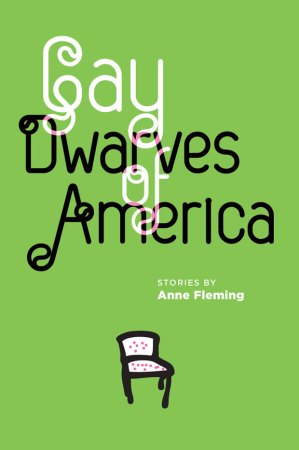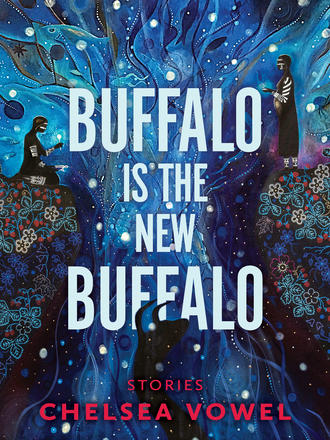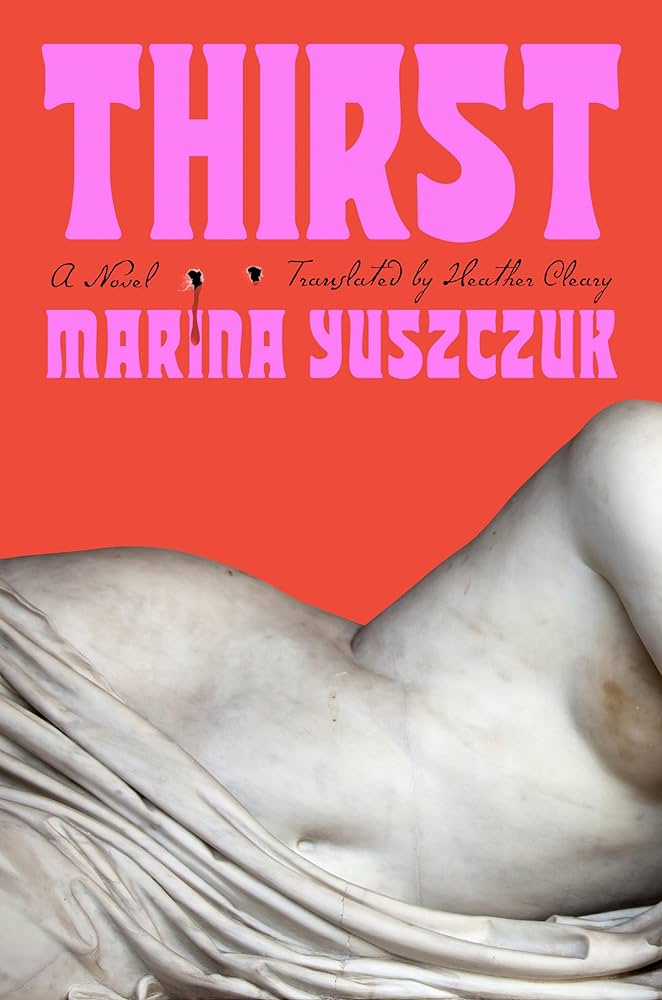
Anne Fleming’s Gay Dwarves of America is a collection of offbeat stories, most of them containing queer content. They are smart, funny and poignant. When Fleming was at the Vancouver Writers Fest last month, all but four copies of this book sold out at her first reading, so I feel lucky to have snapped one up. After her second event, Fleming signed pieces of paper instead.
To give you an idea of Fleming’s stylistic range within the collection, consider a) Backstock: The Musical, written as musical theatre set in the storage area of an outdoor equipment store; b) Puke Diary, hilarious excerpts from each family member about the occasions when they vomited, starting with Sarah the cat; and c) the self-descriptive Thirty-One One Word Stories, which is the only one that left me scratching my head a bit.
Peter Who Once Loved Margaret opens: “I saw my Aunt Margaret, who died in China the year I was born, on West Hastings one morning last fall.” It’s not a ghost story.
“Of three stalls only one was occupied, by the owner of size seven-and-a-half shoes whose heels beggared the imagination. It took me right back to last season’s Canadian Idol and the mesmerizing drama of whether the poor young women with toes stuffed down a ski hill of a shoe into vicious little leather arrowheads would possibly make it through the three or four steps they were required to make so as not to incur the criticism of being Celine Dionesque comme Martha Joy, in my opinion the most talented of the year’s crop, MOR taste in music notwithstanding.”
In The Pear, a lonely parasitologist considers her feelings for another woman: “You’re too old for her, intimated the furtive wordless homunculus lodged in the crypt of my inner mind. You’re the wrong sex. I think. (The homunculus and I have ever been foggy on such matters.)”
Teenaged Jenny experiments with a femme fatale look in Unicycle Boys. Seeing her mirrored reflection made her suddenly feel sad and uncertain. “And then I took out my lipstick and fell all over again for its crimson plushness. Reapplying strongly-coloured lipstick, I’ve discovered, is a fail-safe curative.” (I wonder if Fleming knew my friend Helen, who also put on fresh lipstick whenever she needed reassurance. Helen said she unwisely accepted a ride from a drunk and, by the time she got home, she looked like a clown.)
In Soyez Blessé, a lesbian comes to terms with being dumped, her thoughts on marriage (a decade before Canada legalized same-sex marriage), and her newfound knowledge of her mother’s lesbianism. At her brother’s wedding: “Bless you, she wanted to say to everyone in the church. May you be blessed. She imagined herself doing it, saying it to everyone, and when she came to Monique’s relatives, she imagined herself speaking French, saying, ‘Soyez blessé,’ and then realized she would be saying, ‘Be wounded.’ Which of course was about as likely.”
Laughing is an excellent way to cope with life’s wounds… so read Fleming’s stories and feel great.


caseythecanadianlesbrarian says
I agree Anne Fleming’s writing is hilarious! Don’t you think, though, that underneath the humour there’s often something quite heartbreaking (like the ending of Puke Diaries, for example)?